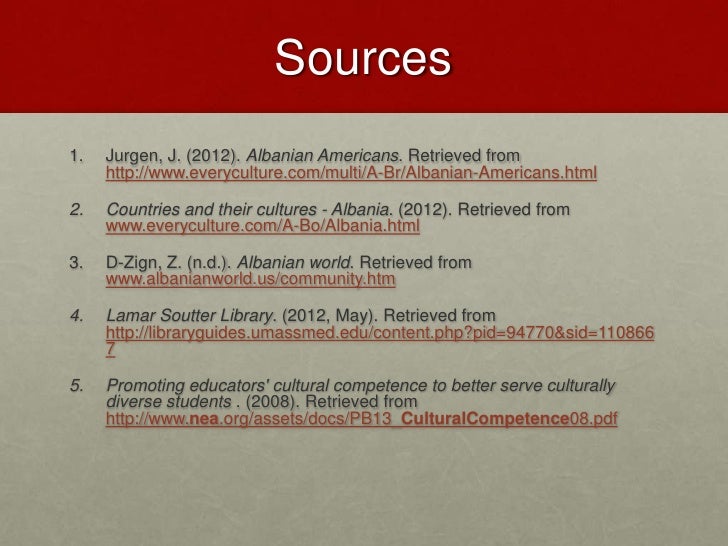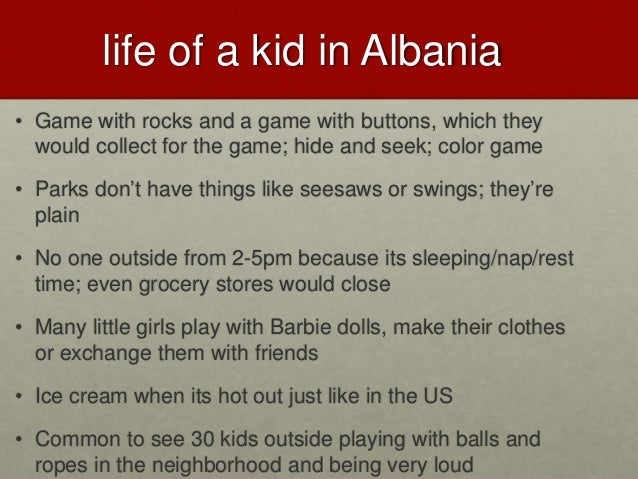Albania And His Friends Pdf Reader
April 12, 1985,Section A, Page10Buy Reprints

- Vived by his wife and his two daughters, Shakespeare was a wealthy man. He was buried April 25, 1616 in the Holy Trinity Church in Stratford-upon-Avon. The stone over his grave reads: Good frend for Jesus sake forbeare, To digg the dust encloased heare: Blest be the man that spares thes stones And curst be he that moves my bones.
- Friends 110 The Lion in Love 112 The Bundle of Sticks 114 The Lion, the Fox, and the Beasts 115 The Mule’s Brains 117 The Eagle and the Arrow 119 The Milkmaid and Her Pail 120 The Cat-Maiden 122 The Horse and the Mule 123 The Trumpeter Taken Prisoner 124 The Buffoon and the Countryman 125 The Old Woman and the Wine-Jar 127 The Fox and the Goat 128.
Sex, God & Marriage In the Image of God In the Image of God God said, “Let us make man in our image and likeness to rule the fish in the sea, the birds of heaven, the cattle, all wild animals on earth, and all reptiles that crawl upon the earth.” So God created man in his own image; in the image of God he created him, male and female.
Enver Hoxha, the Albanian leader, who died in Tirana yesterday, kept his isolated mountain country rigidly cordoned off for four decades.
Historically preyed on since Greek and Roman times, Albania maintained its independence under his defiantly Stalinist leadership. But his policies also left Albania with few friends abroad as his Government broke with a succession of more powerful foreign benefactors and protectors.
Mr. Hoxha derived his absolute powers at home from his positions as First Secretary of the Albanian Workers (Communist) Party and Commander in Chief of the armed forces.
'Let everyone understand clearly, the walls of our fortress are of unshakeable granite rock,' he wrote in one of the many volumes of memoirs, some containing reminiscences of Stalin, that he penned over the years. More than 40 volumes of speeches and reminiscences by Mr. Hoxha were published.
Resonant Passages
His writing contained resonant passages. In 1982, after asserting that 'imperialists and their lackeys say that we have isolated ourselves from the 'civilized world,' ' he added this ringing sentence:
'Both the bitter history of our country in the past and the reality of the 'world' that they advertise have convinced us that it is by no means a 'civilized world,' but a world in which the bigger and stronger oppress and flay the smaller and the weaker, in which money and corruption make the law, and injustice, perfidy and backstabbing triumph.'
Albania was one of the first Communist countries to denounce the revisionism of Josip Broz Tito of Yugoslavia, siding with Stalin in 1948. Then, Mr. Hoxha cut his ties with the Soviet Union, too, at the height of Nikita S. Khrushchev's de-Stalinization campaign in 1961, about the time of the Chinese-Soviet split.
Mr. Hoxha began to rely on China for material support. True to the old Balkan saying that the enemy of my enemy is my friend, Mr. Hoxha became a vocal, albeit increasingly irrelevant, supporter of Mao Zedong when he found himself isolated from the Soviet bloc.
Chill in Ties With China
But again Mr. Hoxha grew disillusioned. The thaw in Chinese-American relations chilled Albania's friendship with China, and their cordiality turned into a rift that, by 1982, stopped just short of a break.
Albania then nurtured tentative contacts with Greece and Turkey, though the Hoxha Government's treatment of ethnic minorities, particularly the ethnic Greeks, strained such efforts. In fact, Vietnam remained just about the only country with which Albania had a close, if hardly profitable, relationship.
Domestically, Mr. Hoxha's objective was to modernize and industrialize what was generally regarded as one of the most backward countries in Europe, although travelers from more developed lands have reported, in recent years, that Tirana, with its old cobblestone streets and sparse auto traffic, retained an almost 19th-century air.

Over the years, the Hoxha Government was given credit for eliminating illiteracy. But it also repressed religion, true to Mr. Hoxha's dictum that Albania had been made into 'the world's first atheist state, whose only religion is Albanianism.' Public observances of religion were prohibited.
Problems for Ethnic Greeks
Ethnic minorities among the nearly 3 million people of Albania were harassed to the extent that ethnic Greeks, for instance, were forced to change Greek- sounding names. Only recently, according to visitors, some teaching of Greek was allowed in the schools as Albania edged toward a more open policy toward Greece.

Through it all, Mr. Hoxha maintained his grip on the tiller, foiling plots, presiding over bloody purges and mass imprisonments of those opposing or not quick enough to heed official changes in course.
Soon after Albania announced in 1981 that Mehmet Shehu, the longtime Prime Minister, had committed suicide, there were unconfirmed reports that he had in fact been killed. But Mr. Hoxha, in a book published in 1982, affirmed that Mr. Shehu had committed suicide.
Accordingly, Western analysts gave attention to a sentence in an article that appeared last February in the Albanian party daily, Zeri i Popullit. In a translation distributed by the Albanian mission to the United Nations, Mr. Shehu was called a 'secret agent of the Americans, Soviets and Yugoslavs' who 'was liquidated because he met with the unbreakable unity of the party with the people.'
Doubts About Slaying Remain
Members of the Albanian-American community in New York contended that the translation was misleading and that the Albanian verb translated as 'was liquidated' had been used in a figurative sense, which did not mean that Mr. Shehu had been killed.
They noted that the article also said: 'The story on Mehmet Shehu's case has been described at length in all its aspects in the already known book by Comrade Hoxha.'
In addition to concentrating on internal security, the Hoxha Government, in its last years, took steps to open transportation ties with its neighbors, Greece and Yugoslavia, although relations with them were chill. Dragon age 2 dlc decrypter le langage du corps.
And by last year, there were other indications that Albania was becoming less isolated and was looking for new ties to other countries. In March 1984, it signed a more extensive trade pact with Italy, which also agreed to enlarge cultural ties.
Son of a Moslem Merchant
Enver Hoxha - the name is pronounced enn-VEHR HAW-dja - was born Oct. 16, 1908, in Gjinokaster, a market town in southern Albania. His father was a Moslem cloth merchant. He was educated on a scholarship at a French secondary school in Korce and, at age 22, he went to France to study at the University of Montpellier.
Albania And His Friends Pdf Reader Download
While in France, he wrote for the Communist newspaper L'Humanite. In 1934 he was appointed a secretary in the Albanian consulate in Brussels, where he took a law course and continued writing for the French daily.
Since his articles were critical of the Government of Albania - then a monarchy under King Zog - his consular appointment was canceled after two years, but he managed to return home and accept a job as a French teacher at his old school in Korce. His continuing attacks on the Government resulted in a brief jail term in early 1939.
Underground During Italian Rule
The Italian Army of Mussolini conquered Albania later that year, forcing out King Zog and placing Albania under the Italian crown. An Albanian puppet government, having joined the Axis in World War II, declared war on the Allies in 1940.
Mr. Hoxha, who had gone underground, became the founder and leader of the Albanian Communist Party in 1941. He was also editor of Zeri i Popullit, the party paper.
He first operated out of a Tirana tobacco shop that served as a front for his Communist activities. The Italians never caught him, but he had to take to the mountains, where he received assistance from Soviet officers who landed in Albania by parachute as well as from American and British liaison officers.
The former French teacher built a guerrilla force of 70,000 men that battled the Italian and later the Germans, who sought to back up their ally for about a year.
After Italy's surrender to the Allies in World War II, its forces withdrew from Albania and the Communist guerrillas proclaimed a provisional government in October 1944, with Enver Hoxha, by then holding the rank of general, as Prime Minister and Defense Minister. This government was recognized by the Western allies later in 1945 with the understanding that free elections would be held.
Albania And His Friends Pdf Reader Free
Single List of Candidates Offered
When the balloting took place, there was only a single list of candidates, sponsored by the Communists. A People's Republic was proclaimed in Albania in January 1946, and the United States and Britain revoked their recognition and blocked Albania from joining the United Nations until 1955.
The Yugoslav Communists, who had helped the Albanian guerrillas from the beginning, had a monetary and customs union with the new Albania. But Mr. Hoxha, fearful of Belgrade's supremacy, cut all ties with the Yugoslavs at the time of the Stalin-Tito break in 1948. He also renamed his ruling Communist Party the Workers Party.
In 1954, Mr. Hoxha turned over the premiership to Mehmet Shehu, but remained the overlord as party chief, changing his title from General Secretary to First Secretary.
After Albania's break with the Soviet Union in 1961, Mr. Hoxha prevailed in a number of power struggles and in an attempted military coup in 1974, involving his own Minister of Defense. The minister and several army officers were executed.
Half of Central Committee Killed
In fact, nearly half of the 31 members of the party's Central Committee of 1948 were put to death in the years that followed. More recently, economic difficulties led to renewed political strife and hundreds of officials were reportedly thrown into prisons for resisting such policy moves as the break with the Chinese, who had served as one of Albania's main supports in its quest for economic development.
General Hoxha, a tall and impressive-looking man, was married to Nexhmije Hoxha, a schoolteacher whom he had met in the wartime guerrilla movement. She became a member of the Central Committee and served after 1969 as director of the Institute for Marxist-Leninist Studies in Tirana.